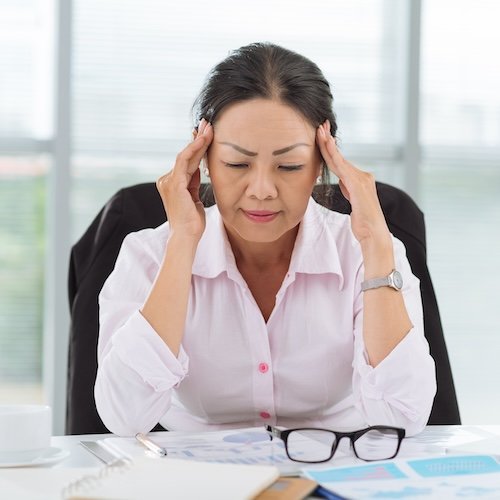Have you ever been on the receiving end of muscle pain on any part of your body especially when it strikes without warning? Myalgia, or commonly known as muscle pain, can involve ligaments, tendons and fascia (soft tissues linking muscles to one another including bones, and organs). This health issue can affect people of all ages, and there are so many reasons why the pain can manifest in the first place.
If you have been bothered by muscle pain lately and want to know why it happens, read on to learn about the possible causes along with suggestions on how to address it before it worsens.
What Causes Muscle Pain?
There are many reasons why people experience muscle pain. Some of the most common include:
- Physical activity: People can experience muscle pain after a workout because of delayed-onset muscle soreness (DOMS). This discomfort, typically caused by inflammation within the muscles, can start 6 to 12 hours post-workout and last up to 48 hours. DOMS is usually a good sign that your muscles are becoming larger and stronger.
However, in some instances, searing and burning muscle pain during or after a workout may also be what’s known as acute muscle soreness. People who do high-intensity exercises usually struggle with this as it occurs due to a build-up of metabolites during the workout. Metabolites refer to small molecules that are created when fat or muscle tissue breaks down, especially during intense periods of exercise. - Injuries: In some instances, muscle pain can be an indicator of injuries, like abdomen or back strains, sprains, or broken bones. If you suspect that you are injured, seek medical attention immediately.
- Bacterial and viral infections: When a person is infected with a bacteria or a virus, the immune system fights the infection causing the person to feel muscle pain.
- Neuromuscular disorders: These disorders target muscles and nerves responsible for controlling said muscles, leading to pain and weakness. People diagnosed with muscular diseases such as amyotrophic lateral sclerosis (ALS or Lou Gehrig’s disease), muscular dystrophy, myasthenia gravis, or spinal muscular atrophy (SMA) may struggle with muscle pain.
- Medicines and treatments: Some medicines or treatments can cause myositis (inflammation of muscle cells), or trigger muscle pain receptors. Medicines to address high blood pressure or high cholesterol levels, and cancer treatments like chemotherapy and radiation therapy can trigger muscle pain.
- Stress: When you feel stressed, your muscles tense up, eventually resulting in pain, tightness, or soreness. Moreover, it can lower your pain tolerance and worsen symptoms of diseases like arthritis and fibromyalgia.
How Can You Address Muscle Pain?
It is important to determine the cause of your muscle pain and it is always best to consult a doctor.
At the onset of pain, monitor your condition closely and try to apply home remedies. However, once you notice any of these indicators, seek medical attention right away:
- Difficulty in walking or breathing
- Muscle weakness
- “Popping” sound
- Swelling
- Pain
- High-degree fever
- Stiff neck
- Open cuts or wounds
- Rashes or insect bites
If you are sure that your muscle pain is not caused by a severe injury, autoimmune disorders, or other similar health issues, check out these tried-and-tested ways to combat muscle pain:
- Rest: Listen to your body – do not exert the muscles if you have a hard time moving them. By doing so, you can give muscles enough time to heal and recuperate so you can do better next time.
- Ice packs and warm compresses or heat packs: Apply these alternately onto the affected area/s to lessen pain and inflammation, especially if you have sprains or other similar injuries.
- Stretching: In general, stretching is known to boost your flexibility and enhanced range of motion in your joints. This leads to a reduced risk for injuries and tightness of muscles that can lead to muscle pain.
- Pain relievers: Ask your doctor about medicines like Mefenamic Acis, Paracetamol or Ibuprofen. Any of these formulas may aid in relieving muscle pain. Just make sure to read the product information leaflet prior to using it to know when you should take these.
If the pain becomes too unbearable, seek medical attention to check if there are conditions or injuries that may be causing it. There may already be underlying issues that need to be acted on as soon as possible.
References:
https://my.clevelandclinic.org/health/symptoms/17669-muscle-pain
https://health.clevelandclinic.org/7-strange-things-stress-can-body/
https://www.webmd.com/fitness-exercise/features/sore-muscles-keep-exercising
https://www.webmd.com/fitness-exercise/guide/muscle-strain
https://www.scinternalmedicine.com/2018/05/11/my-muscles-are-sore-and-i-havent-been-working-out-why/
https://www.hopkinsmedicine.org/health/conditions-and-diseases/myalgia
https://www.hopkinsmedicine.org/health/wellness-and-prevention/9-benefits-of-yoga
https://www.health.harvard.edu/staying-healthy/the-importance-of-stretching
https://www.self.com/story/benefits-of-stretching
https://www.mayoclinic.org/healthy-lifestyle/fitness/in-depth/stretching/art-20047931
https://www.mayoclinic.org/symptoms/muscle-pain/basics/when-to-see-doctor/sym-20050866 https://www.cancer.gov/publications/dictionaries/cancer-terms/def/metabolite








